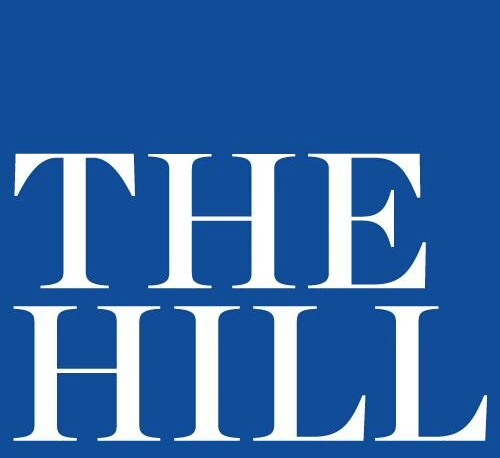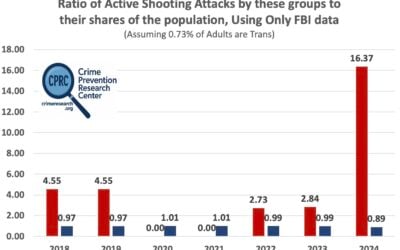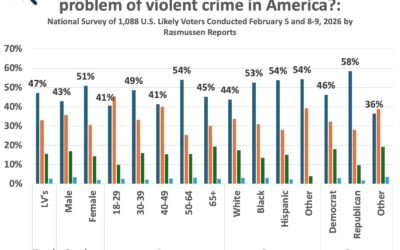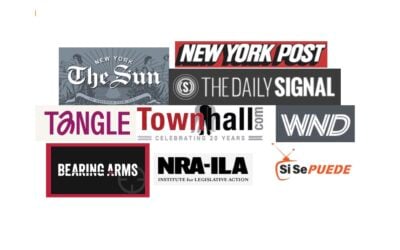Dr. John Lott has a new piece at The Hill newspaper. Unfortunately, the editors made changes in my piece without my permission. The changed my statement of 94% of mass public shootings occurring in gun-free zones to an “enormous amount.” There were other similar changes.
.
Gun control advocates keep claiming that good guys with guns are not effective at stopping mass shootings. But it looks that way only if we rely on the news media and the government for crime data.
.
Records of media reports that I have compiled since the beginning of 2021 show police have noted in 33 cases in which a concealed handgun permit holder stopped what appeared to be a mass murder in the making. But few of these heroic cases have gotten national news attention.
.
Police are very important in stopping crime, but they have a limited ability to stop attacks.
.
“A deputy in uniform has an extremely difficult job in stopping these attacks,” noted Kurt Hoffman, a Sarasota County, Fla sheriff. He said that mass shooters can “wait for a deputy to leave the area or pick an undefended location” as an advantage over police. Even with a visible police or security presence, he said, “Those in uniform who can be readily identified as guards may as well be holding up neon signs saying, ‘Shoot me first.’”
.
There’s a good reason that air marshals don’t wear uniforms on planes. By being inconspicuous, they prevent attackers from having a tactical advantage.
.
My research also revealed that recent cases such as the Lewiston, Maine, and the Nashville Covenant School attacks occurred in gun-free zones where patrons are either discouraged from carrying guns or face fines and imprisonment for having them. Very few in the media have covered that fact.
.
The Nashville police chief, who got a look at the murderer’s entire manifesto, noted that the murderer originally targeted another location but decided against that “because of a threat assessment by the suspect of too much security.” The Buffalo mass murderer last year wrote in his manifesto that “areas where [concealed carry weapons] are outlawed or prohibited may be good areas of attack.”
.
My research shows it’s hard to ignore the enormous amount of mass public shootings that occur in places where guns are banned.
.
The Associated Press, New York Times and Washington Post cite FBI reports to show that legally armed civilians stopped only about 4 percent of active shooting attacks. Until January 2021, I worked in the U.S. Department of Justice as the senior adviser for research and statistics; part of my job was to evaluate these reports.
.
I showed the bureau that many cases were missing and that others had been misidentified. Yet, the FBI continues to report that armed citizens stopped only 14 of the 302 active shooter incidents that it identified from 2014 to 2022. In fact, per my research, armed citizens stop an almost eight times higher share of attacks. And if we limit our focus to places where permit holders are allowed to carry, the rate is 11 times higher.
.
The FBI defines active shooter incidents as “one or more individuals actively engaged in killing or attempting to kill people in a populated area.” But it does not include shootings that are deemed to be related to other criminal activity, such as robbery or fighting over drug turf. Active shootings may involve just one shot being fired at just one target, even if the target isn’t hit.
.
The FBI has provided funding to Texas State University’s Advanced Law Enforcement Rapid Response Training (ALERRT) Center and has partnered with its researchers to compile lists. Police departments aren’t generally required to collect active shooter data, so the researchers most likely had to find news stories about incidents.
.
It isn’t surprising that people will miss cases or occasionally misidentify them, though the sheer number of missing cases involving defensive gun uses is startling. The FBI was unwilling to change its figures when I pointed out my findings when I was at the Department of Justice or earlier.
.
My organization, the Crime Prevention Research Center, has continued this work and spent only a few thousand dollars (compared to millions spent by the FBI) and found an additional 138 cases, plus five more that were misclassified.
.
Instead of 14 of 302 active shooting attacks being stopped, we found that 157 out of 440 were stopped. That’s a rate of 35.7 percent. We found a rate of 41.3 percent for 2022 cases, and that goes up still further to 63.5 percent when gun-free zones are excluded.
.
A recent piece in The Hill by gun control advocate Devin Hughes (who incorrectly calls me a “former researcher”) claims that a recent study I co-authored “made a startling statistical admission . . . no longer finding that more guns resulted in less crime.” In fact, traditional fixed-effects estimates show statistically significant results. And with new difference-in-difference estimates there is a clear, statistically significant downward trend after right-to-carry laws are adopted, and looking at results only for individual years where there are fewer observations in any particular year would reach that conclusion.
.
Most empirical studies that I’ve reviewed support my original findings. The ones that don’t overwhelmingly take the mistaken approach of looking only at later years. They implicitly assume that the states that adopted concealed handgun laws most recently are issuing more concealed handgun permits. In fact, the earlier-adopting states are still issuing more permits than the recent adopters.
.
A recent survey by Arthur Berg, Gary Mauser and I shows that most researchers who have published peer-reviewed empirical research on gun control believe that eliminating gun-free zones and allowing people to carry concealed handguns would reduce both mass public shootings and murder.
.
Many cite the National Research Council’s (NRC) 2005 “Firearms and Violence” report to criticize my work, but they fail to describe its findings accurately. The NRC refrained from reaching a conclusion on any of the dozens of different gun regulations it studied.
.
In fact, it was more supportive of right-to-carry laws than any other gun law, as there was a rarely published dissent by the preeminent criminologist James Q. Wilson. He noted that NRC’s own estimates showed that murder rates fell after states passed right-to-carry laws.
.
Mass murderers’ reasons for picking their targets should be newsworthy, and the media’s blackout endangers people’s safety. Given how often armed civilians stop attacks, these murderers have good reasons to avoid places where civilians can protect themselves.
.
John R. Lott, Jr., “At The Hill: Good guys with guns save lives. Don’t believe the hype,” The Hill, November 30, 2023.





0 Comments